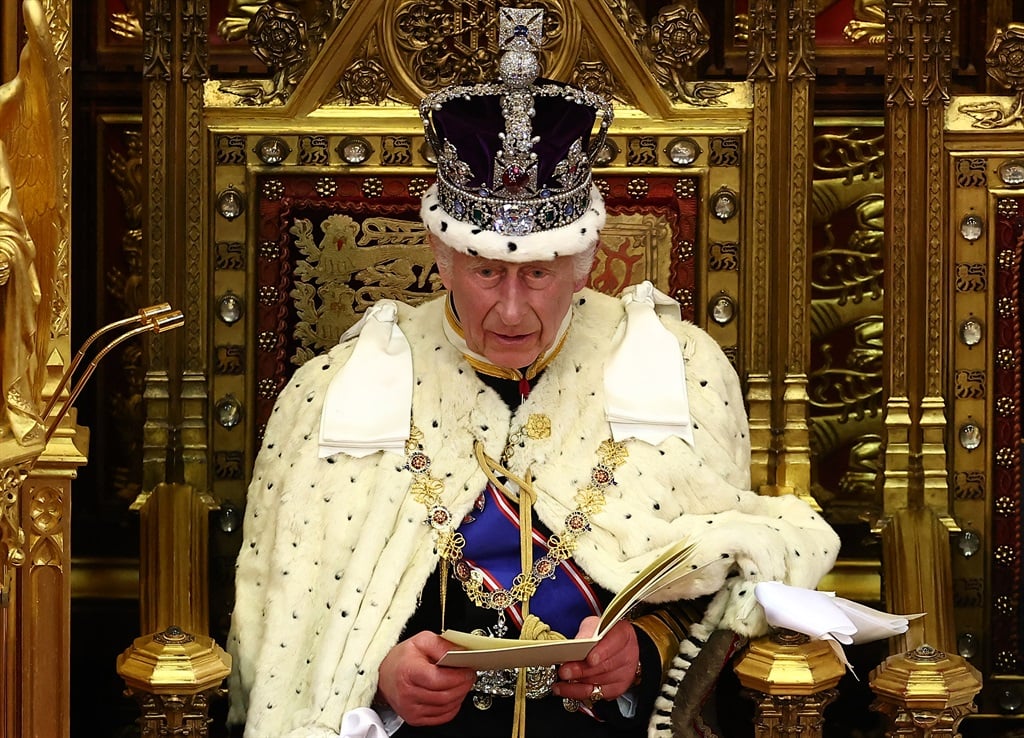Britain’s King Charles III reads the King’s Speech in the House of Lords chamber on 17 July 2024. The government-written speech included a commitment to end an amnesty scheme in Northern Ireland inspired by South Africa’s TRC. (HENRY NICHOLLS / POOL / AFP)
- The new British government as reiterated an election pledge to scrap a scheme to draw a line under violence in Northern Ireland.
- The amnesty scheme for soldiers and militants was inspired by South Africa’s Truth and Reconciliation Commission (TRC).
- It was opposed by both sides in the conflict, and subsequently found to be unlawful.
Britain’s new government said on Wednesday it would scrap an amnesty scheme for ex-soldiers and militants involved in decades of violence in Northern Ireland that has been opposed by all major parties in the region and by the Irish government.
The plan had been inspired by South Africa’s Truth and Reconciliation Commission (TRC) process, based on proposals dating back more than two decades.
The move fulfils a promise in the Labour Party’s election manifesto to repeal and replace the Legacy Act, which the government said “denies justice to the families and victims of the Troubles”.
Specifically, it will repeal the “conditional immunity scheme,” which has been found by the Northern Ireland High Court to be incompatible with Britain’s obligations under the European Convention on Human Rights.
It will also reverse the policy of prohibiting victims and families from bringing civil claims.
Victims’ families, human rights organisations and both British unionist and Irish nationalist political parties have opposed the act, which has been subject to more than 20 legal challenges in Northern Ireland.
The outgoing Conservative government had defended the law by saying that prosecutions linked to the events of up to 55 years ago were increasingly unlikely and that the bill could help draw a line under the conflict.
The announcement comes ahead of a meeting between British Prime Minister Keir Starmer and his Irish counterpart Simon Harris at the British government’s Chequers country residence later on Wednesday.
Harris, who took office in April has called for a “great reset” of ties with Britain, which have been fractious in recent years. His government had been challenging the Legacy Act at the European Court of Human Rights.
Around 3 600 people died in three decades of confrontation between Irish nationalist militants seeking a united Ireland, pro-British “loyalist” paramilitaries and the British military before a 1998 peace deal largely ended the conflict, known locally as the “Troubles”.
SA-inspired
On Northern Ireland, the British government had looked to the principles behind South Africa’s peacemaking efforts to guide its own policy. That saw it moved from a plan for blanket amnesty to a conditional scheme, where perpetrators would avoid prosecution if they made full disclosures.
That was to be by way of the Independent Commission for Reconciliation and Information Recovery, which started operations in May.
Critics were not convinced, in part because of what they saw as failures in South Africa’s TRC process.
– Additional reporting by News24




















Discussion about this post